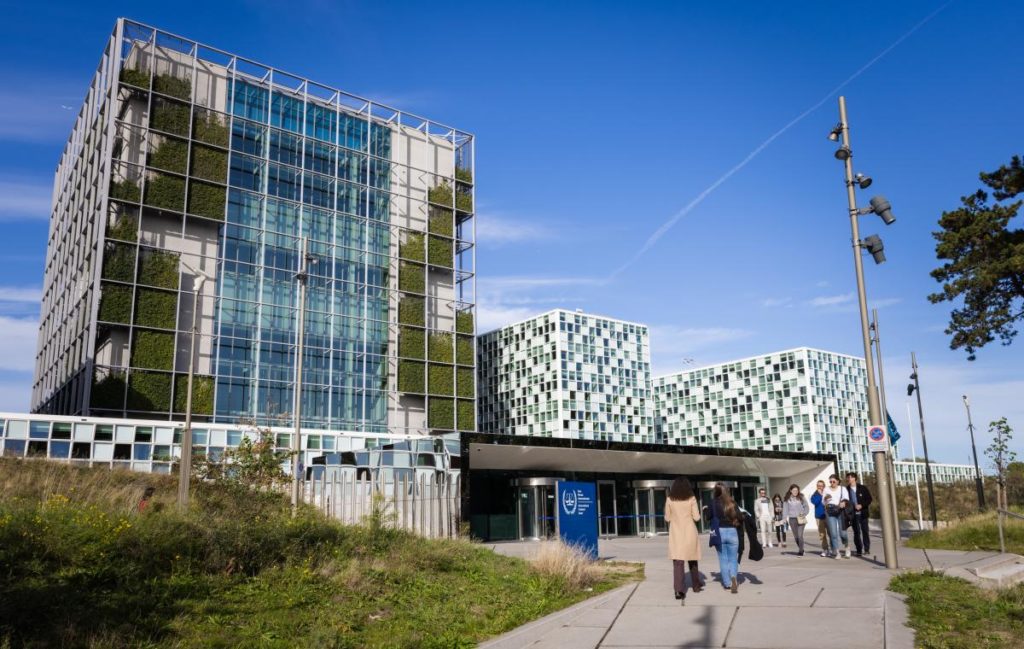Ukrainian human rights groups accuse Belarus of militarizing Ukrainian children in ICC
Human rights organizations have presented evidence to the ICC detailing the systematic indoctrination and militarization of over 2,200 Ukrainian children in Belarus, marking it as a targeted crime against humanity.


Freedom House, the Regional Human Rights Center, and the Human Rights Center ZMINA have submitted a new lawsuit to the International Criminal Court on Russian crimes against Ukrainian children.
It is the fourth lawsuit by human rights defenders, focusing this time on political indoctrination and militarized reeducation of children on the territory of Belarus. These systematic and widespread actions bear the signs of crimes against humanity, particularly discriminatory persecution, under Article 7(1)(h) of the Rome Statute.
“The submission aims to close the gaps further – both in the list of individuals involved in the processes of relocating and indoctrinating Ukrainian children and in their actions.
Particular attention is paid to representatives of Belarus. Given the complexity of classification and the focus on the deportation of children, what happens to Ukrainian children after it and to those who remain on occupied territory is often overlooked.
These children are the target of a whole strategy aimed at erasing Ukrainian identity: from calling them exclusively ‘Russian children’ to sending them to ‘camps’ surrounded by propaganda and continuous militarization. Unfortunately, this practice is very effective. Some children, after prolonged exposure to this system, become agents of propaganda themselves. This policy of Russia, Belarus, and the Union State is aimed at erasing the self-identification of these children as Ukrainians and fostering future citizens of Russia, and it requires special attention,” explained ZMINA legal analyst Onyssia Syniuk.
The authors of the new lawsuit say that it is unique because, for the first time in the history of international courts and tribunals, it addresses the issue of discriminatory persecution of children.
The criminals deliberately selected children for reeducation based on their age, nationality, place of residence, and belonging to vulnerable categories such as orphans, children with disabilities, and those deprived of parental care. The political indoctrination and militarization of these children have caused severe and long-term negative consequences, both for each child and for the Ukrainian nation.
The report is supplemented by 87 extensions containing exclusive information confirming the involvement of Belarusian representatives in the eradication of Ukrainian national identity and the indoctrination of children.
Human rights defenders have identified 18 institutions where, since 2021, young Ukrainians aged six and up have been regularly transported for reeducation. They have also identified 2,219 Ukrainian children who have suffered from discriminatory persecution, confirming the large scale of the crime.
The report provides a detailed description of the hierarchy of accused individuals, from collaborators on occupied territories to high-ranking officials from Russia and Belarus. It also outlines the logistics of deportation, funding, and the development of reeducation propaganda programs, pointing to the systematic nature of these illegal actions.
Human rights defenders have appealed to a prosecutor of the International Criminal Court to launch an investigation into the political indoctrination and militarization of Ukrainian children, which shows signs of crimes against humanity. They have also requested that the Pre-Trial Chamber II issue arrest warrants for the suspects.
Read more:
- Sikorski urges US to expedite aid for Ukraine, Israel after Iran’s attack on Israel
- Polish FM Sikorski: Russia is not invincible, West can still defeat Putin
- Sikorski on Ukraine, Europe, Poland, NATO, and Putin
You could close this page. Or you could join our community and help us produce more materials like this.
We keep our reporting open and accessible to everyone because we believe in the power of free information. This is why our small, cost-effective team depends on the support of readers like you to bring deliver timely news, quality analysis, and on-the-ground reports about Russia's war against Ukraine and Ukraine's struggle to build a democratic society.
A little bit goes a long way: for as little as the cost of one cup of coffee a month, you can help build bridges between Ukraine and the rest of the world, plus become a co-creator and vote for topics we should cover next. Become a patron or see other ways to support.



